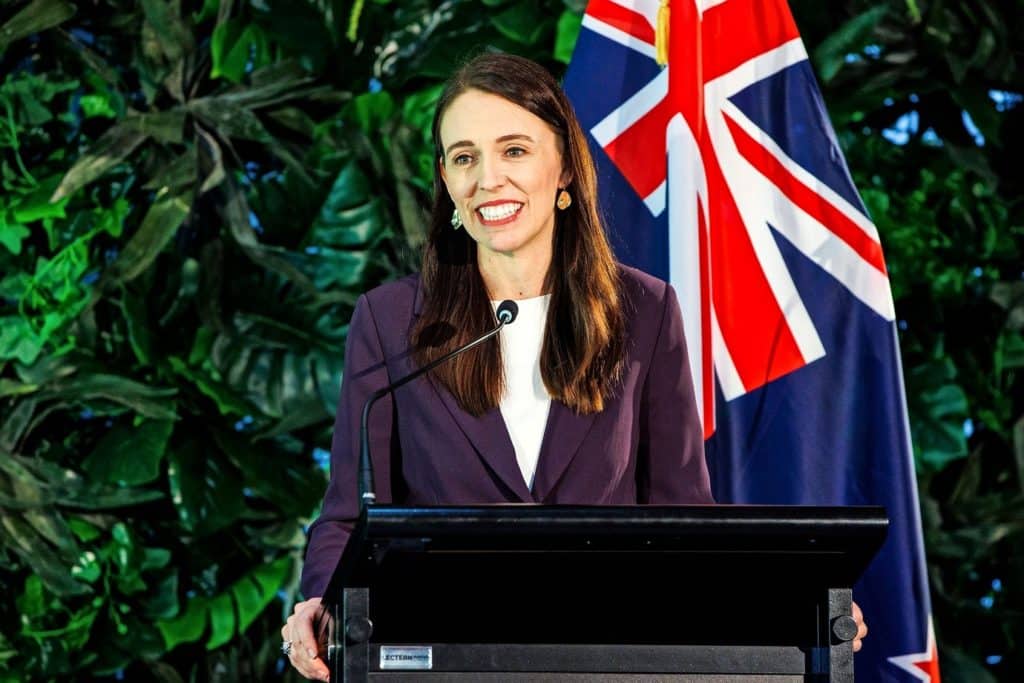On announcing she won’t be contesting this year’s election in New Zealand, Jacinda Ardern said she had “nothing left in the tank.”
So just how much did she give during her time as prime minister?
Ever since she became the world’s youngest female head of state at age 37, Ardern has given New Zealand and the world a “kind but strong” style of leadership- exactly what she hoped her legacy would hold.
Promoting diversity and gender equality, shutting down sexist reporter questions, leading with empathy after the Christchurch attack and leading the country through a pandemic— below are some of Ardern’s shining moments.
Promoting diversity and gender equality
There were more women, people of colour and LGBTQI MPs in Ardern’s government than ever before in NZ history.
In October of last year, NZ hit a gender equality milestone, with women making up the majority of its parliament for the first time.
In 2020, Ardern made it easier for women to negotiate with their employers for equal pay, when the parliament passed the Equal Pay Amendment Bill.
That same year, she made a commitment to end “period poverty” by giving all school-aged people who have periods free sanitary products.
Ardern was also the first PM to ever march in a Pride parade.
And she’s broken down gendered stereotypes of what a ‘real leader’ looks like by showing the world the realities of parenting and running a country. In 2018, Ardern made headlines for being the first person ever to bring her child to a United Nations General Assembly meeting. While she gave her speech, her partner Clarke Gayford held baby Neve.
Giving a world-leading response to COVID-19
Ardern’s leadership on COVID-19 in New Zealand’s has been globally applauded, especially during the first year. From the beginning of the pandemic, Ardern worked diligently to put policies into place that worked towards elimination of the virus.
Ardern’s collaboration with health experts and overall strategy proved largely successful for the safety of New Zealand communities.
In 2020, herself and her parliamentary cabinet even took a 20 per cent pay cut in solidarity with New Zealanders who had lost their jobs and livelihoods as a result of the pandemic.
Shutting down sexist reporters
Unfortunately, Ardern has had to deal with a fair deal of sexist questions from male reporters over her time in office. Nevertheless, she’s always managed to handle these situations gracefully– unafraid to call reporters out and put them in their place.
Hopefully, there will come a time when female leaders no longer have to put up with such archaic lines of questioning, but Ardern’s quick and tactful responses will be a lasting part of her legacy.
Leading with empathy after the Christchurch attacks and White Island volcano eruption
After the horrific murder of 50 Muslim worshippers in Christchurch in 2019, Ardern stepped up to say “never again” by swiftly labelling the incident a terrorist attack and working to successfully ban semi-automatic rifles in New Zealand.
She also brought much-needed emotion and empathy centre-stage as she honoured victims’ and their families after the attack.
Wearing a hijab, Ardern called for solidarity among all New Zealanders and visited with Muslim families to tell them they are welcome and supported in NZ by saying, “You are us”.
Later that year, another disaster occurred in NZ when White Island Volcano erupted, killing more than 20 people and injuring many others. Ardern stepped up again with powerful empathy to praise the efforts of first responders and offer support to them and the victims’ families.
Pushing aggressive climate action policies
Back in 2019, Ardern’s government committed to net zero emission by 2050 with landmark climate legislation and historic cross-party support.
She declared a climate emergency in NZ in December 2020, calling climate change “one of the greatest challenges of our time”.
And in March 2021, New Zealand became the first country to require that banks, investment managers and insurers disclose the effects of climate change on their businesses.
Later that year, Ardern announced that NZ would reduce its net greenhouse emissions by 50 per cent by 2030 as the country looked to be more ambitious on climate change.
Amplifying Maori voices and culture
Ardern introduced a new public holiday in New Zealand to celebrate Matariki, the start of the Maori New Year.
And in October of last year, she delivered a Crown apology to a Maori tribe for warmongering and breaches to the Treaty of Waitangi. The apology, which she called a “momentous occasion”, was 30 years in the making and saw the government agree to a $NZ165 million redress and the return of 36 culturally significant sites.
Bringing ‘humanity’ to politics
Ardern’s public image is synonymous with a kind and empathetic leadership style. She’s been very vocal about her goal to bring “a bit more humanity” to politics in order to encourage others to become politicians.
During her resignation speech today, she reiterated this goal saying she hopes to be remembered as a leader who pursued kindness.
After giving a heartfelt “thank you” to New Zealanders for allowing her to serve in what she “considers to be the greatest role of her life”, Ardern said she hopes to leave behind the belief that “you can be kind but strong, empathetic but decisive, optimistic but focused.”
“That you can be your own kind of leader. One that knows when it’s time to go.”


